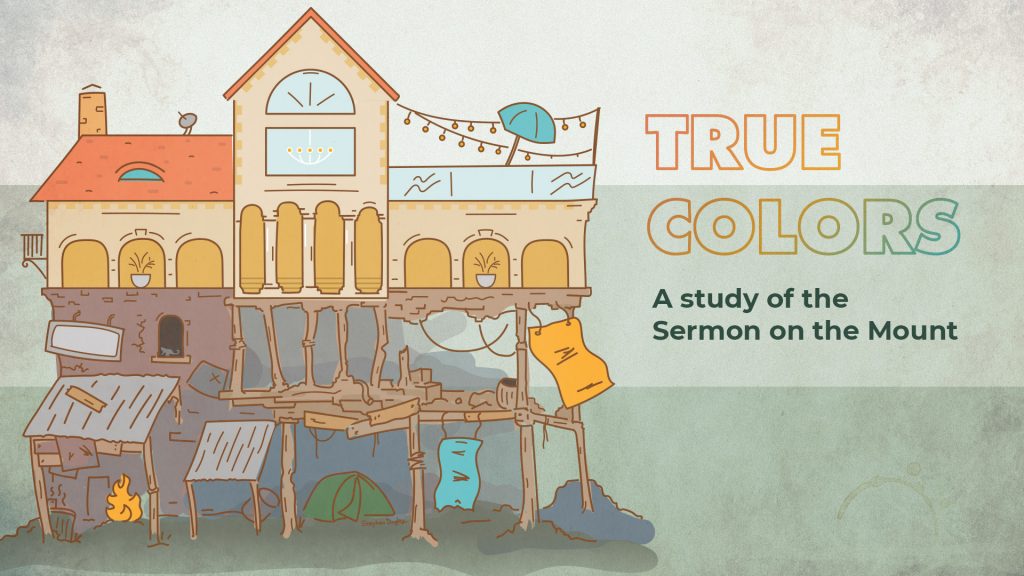Passage: Matthew 5:21-26
Guide for Group Discussion or Personal Reflection
Sermon Summary
In Matthew chapters 5-6, Jesus starts unpacking what the “righteousness that exceeds that of the scribes and Pharisees” looks like in daily life, beginning with anger.
First, Jesus exposes what anger looks like at its origin. Whereas we know the command “You shall not murder”, and we can readily agree that “whoever murders” should be “liable to judgment” (5:21), Jesus teaches that the seeds of act of murder are already present in us when we begin to simply dismiss a person, or look on them with anger and contempt. Murder is the ultimate act of violence against the image of God in a person, but when we begin to write someone off—to view them as a “fool” or a moron (5:22)—we are already beginning to strip them of their human dignity.
Jesus also warns us of anger’s outcome. Our anger, even in its seed form, will be liable to the same judgment as the act of murder itself—“the hell of fire” (5:22). By allowing our anger at others to fester, we are embracing an attitude of self-righteous, accusatory entitlement. This is the very attitude of Satan, and God is utterly opposed to it. It will only grow in us unless we nip it in the bud. If we don’t, God will judge us for it, and our destiny will be the same as Satan’s.
Jesus, then, deepens and intensifies the command against murder, showing its truest intent, and proving that it’s a problem for everyone. Knowing this, we should seek at all costs “to be reconciled to our brother” (5:24). God would rather have our purity in our hearts and wholeness in our community than our ritual acts of worship.
Ultimately, only Jesus heals our anger. He never harbored the seeds of unrighteous anger in his heart, and yet was handed over to death as a result of our collective outrage. On the cross, he not only forgave us for our anger, but showed us the way his kingdom would advance—not through outrage, but through self-giving love.
Sermon Outline:
• The Origin of Anger (5:21-22)
• The Outcome of Anger (5:21-22; 25-26)
• The Healing of Anger (5:23-24)
Group Discussion & Personal Reflection Guide
Re-read the passage(s): Matthew 5:21-26
The Origin of Anger (5:21-22)
1) Re-read Matthew 5:21-22. How do you think Jesus’ first listeners reacted to hearing this? What was your own initial reaction to hearing these verses?
2) In the sermon, Pastor Bobby said that the phrase about being “angry with your brother”—literally, “whoever says ‘Raca!’ to his brother”—means something like to call them an “airhead”, or an empty-headed person…to write them off as a “fool”. When have you dismissed someone with this kind of contempt before? If you’re honest, where are you tempted to do so right now?
3) The kind of contempt that Jesus speaks against here is generally easy to detect in others, but harder to detect in ourselves. Why do you think that is?
4) When we’re angry, it’s very easy to feel justified in our anger—and the Bible does have a category for “righteous anger”. How can you tell when your anger is “righteous anger”, and when it is the kind of anger Jesus is speaking against in these verses? What are some of the signs?
The Outcome of Anger (5:21-22; 25-26)
5) Re-read Matthew 5:21-22. What does Jesus describe as the consequence for murder? What does he describe as the consequence for being “angry” with your brother, “insulting” them, or calling them a “fool”? How do the consequences compare? Why is anger such a big deal to Jesus?
6) How would you respond to someone who says, “I know that I should be less angry with people, does that really merit the same punishment as murder?”
The Healing of Anger (5:23-26)
7) Re-read Matthew 5:23-26. What does Jesus say to do here if we “remember that our brother (or sister) has something against us”? How often do we actually pursue this kind of reconciliation? What keeps us from doing it more often?
8) Jesus says we should be reconciled to our brother “if we remember they have something against us”—not “If we have something against them”. What difference does this make? What does this show about the value Jesus places on reconciliation?
9) Where do you need to pursue reconciliation? What would this look like in your life? How does the gospel free you to pursue it?
Additional Application Questions
Q) How else would you like to engage with God this week?
Q) How can you tangibly care for those in your community this week, both inside and outside of the church?
Prayer
Spend time praying for yourselves, our church community, the North Shore community, and our nation and world—particularly those most vulnerable.

